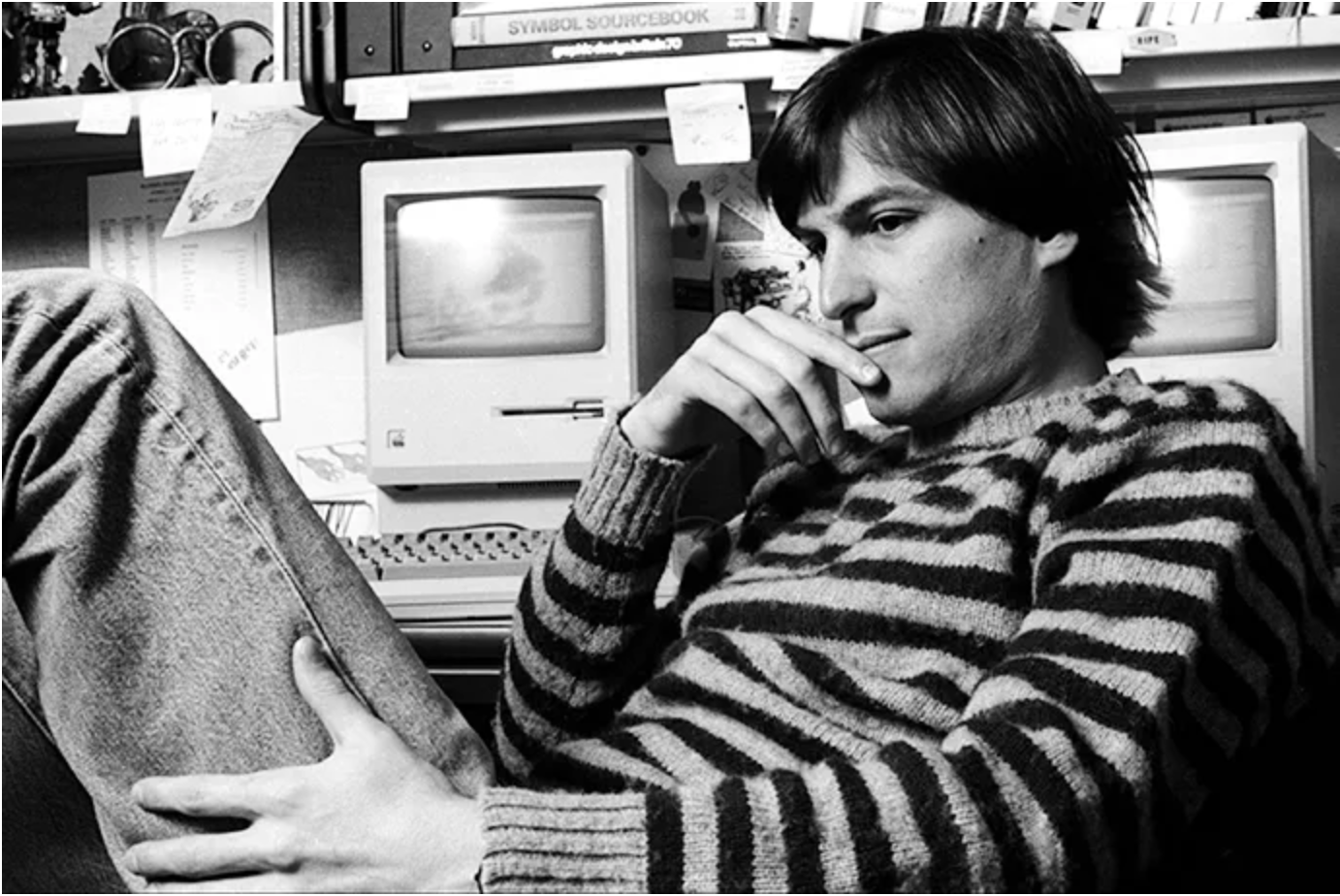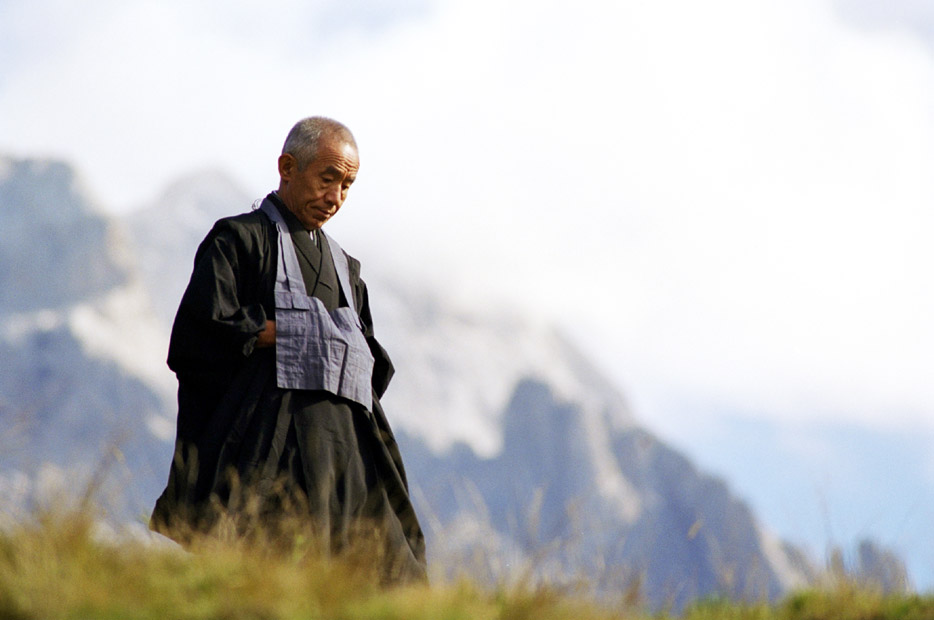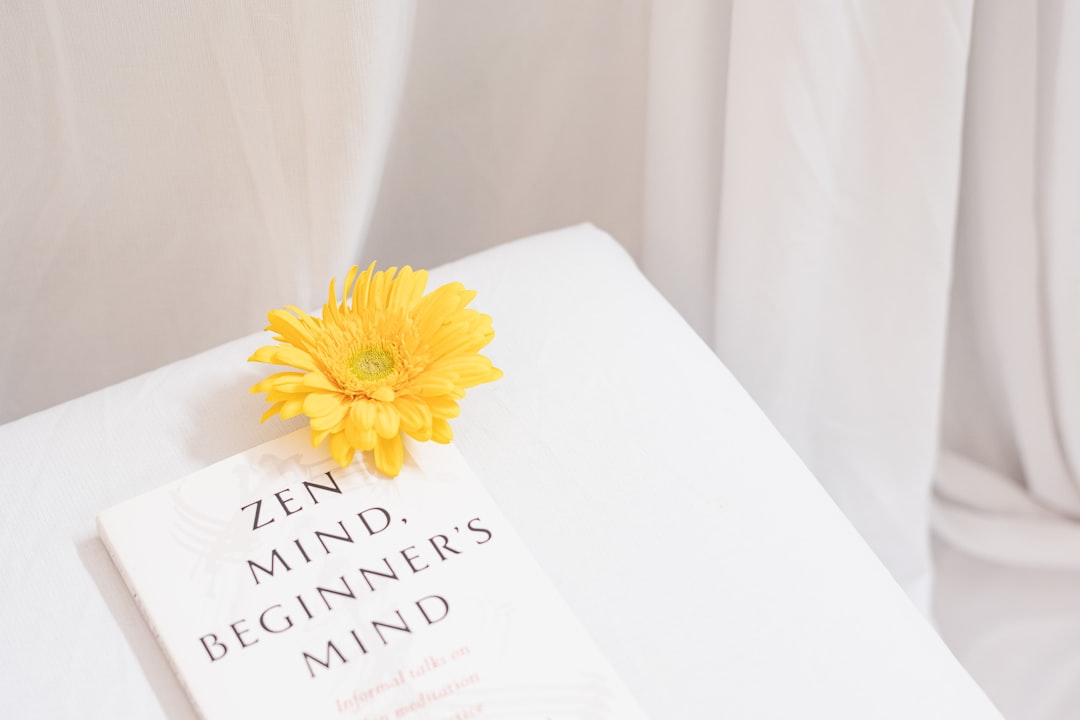
When a youthful and newly spiritual Steve Jobs, fresh from an inspiring jaunt in India, returned to San Francisco at the age of 19, his own parents didn't recognize him. The Reed College dropout had immersed himself in the meditative philosophies of Hinduism and Buddhism under the Indian sun. This transformative journey had not only darkened his skin but also ignited a profound inner revolution destined to reshape the business world.
Resuming life back in the Bay Area, Jobs deepened his spiritual awakening, turning to Zen Buddhism amidst its burgeoning influence in 1970s San Francisco. Inspired by Shunryu Suzuki's groundbreaking book, "Zen Mind, Beginners Mind," Jobs sought the tutelage of Suzuki's disciple, Kobun Otogawa. Under Otogawa, Jobs undertook a rigorous routine of meditation and reflection. As Jobs himself once said, "Meditation is the training of the mind, like fitness is the training of the body".

Kōbun Otogawa (乙川 弘文, Otogawa Kōbun) (February 1, 1938 – July 26, 2002) was an American Sōtō Zen priest

Photo by Sehajpal Singh / Unsplash
Zen Buddhism and the meditation it propagated shaped Jobs' awareness and understanding of his personal thinking processes. His unique insights on meditation, as he once expressed to Isaacson, reveal how discipline and patience tamed the restless wanderings of his mind, leading to a blossoming of intuition and a heightened clarity. He famously noted, "Your work is going to fill a large part of your life, and the only way to be truly satisfied is to do what you believe is great work. And the only way to do great work is to love what you do."
His connection with Zen was so profound that Jobs contemplated moving to Japan to foster greater depths into his spiritual quest. Otogawa, however, foresaw that Jobs had a grander mission in California. Time and again, Jobs’ spiritual journey played a vital role in solidifying his purpose. He once touched on this spiritual sentiment, "Remembering that you are going to die is the best way I know to avoid the trap of thinking you have something to lose. You are already naked. There is no reason not to follow your heart."
Jobs' career showcases a fundamental Zen influence, affirming 1300 years of Zen benchmarks pertaining to courage, resoluteness, austerity, and an overarching aura of rigorous simplicity. Viewed in Apple's jargon as 'insane simplicity,' Zen traits can be discerned throughout the firm's design philosophy.

Photo by Ash Edmonds / Unsplash
A showcase of this influence is the evolution of Apple’s signature mouse. Jobs once said, "Design is not just what it looks like and feels like. Design is how it works." And this rings true for every single product Apple created under his visionary leadership.

Photo by Brandon Romanchuk / Unsplash
However, Zen's impact was not confined solely to aesthetics. It pervaded Jobs' perception of his customers. He strove to intuit customer needs before they themselves were aware of them, a deep empathy stemming from his Zen practices. Jobs made it clear when he said, "You can't just ask customers what they want and then try to give that to them. By the time you get it built, they'll want something new."
Meditation in Zen, practitioners and studies suggest, stands as a potent tool to foster empathy. For Jobs, business growth and personal awareness were interwoven journeys.
The New York Times, following Jobs’ passing, fittingly extolled, "He touched the tech world and turned it beautiful." The echoes of Jobs' spiritual path in India and subsequent Zen practices resonate in the democratized beauty and simplicity of Apple designs that continue to revolutionize our world.


